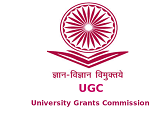Evaluation of Oral Dysfunction in Completely Edentulous Denture Wearing Patients
DOI:
https://doi.org/10.55995/j-cpi.2020002Abstract
Background: Oral dysfunction is the difficulties faced by the complete denture wearers during speech mastication, pain and esthetics. By knowing this oral dysfunction we can make a satisfactory complete denture to the patient.
Aim: The aim of the study is to evaluate oral dysfunction in complete denture wearers using a Clinical Dysfunction Index.
Materials and Methods: Potential study participants were interviewed regarding their satisfaction with their complete denture after minimum three months of denture wear. The first twenty satisfied and unsatisfied complete denture wearers were recruited for the study. The data collection was done using a questionnaire and clinical examination was carried out to ascertain the quality of the denture based on stability, occlusion, articulation, oral mucosa and resilience. Clinical Dysfunction Index by Helkimo [1974] was used to assess the functional health of the Temporo-Mandibular joint.
Results: According to the results of our study fewer participants reported difficulty in chewing among those with correct articulation, correct occlusion and good retention of their dentures and more participants reported difficulty in chewing with dentures having incorrect articulation, incorrect occlusion and minimum retention Conclusion: Knowledge about oral dysfunction in complete denture wearers can motivate us to pay careful attention to factors that may influence the satisfaction of complete denture wearers as observed from this study.
Downloads
Published
How to Cite
Issue
Section
License
The entire contents of the Journal of Clinical Prosthodontics and Implantology are protected under Indian and international copyrights. The Journal, however, grants to all users a free, irrevocable, worldwide, perpetual right of access to, and a license to copy, use, distribute, perform and display the work publicly and to make and distribute derivative works in any digital medium for any reasonable non-commercial purpose, subject to proper attribution of authorship and ownership of the rights.






